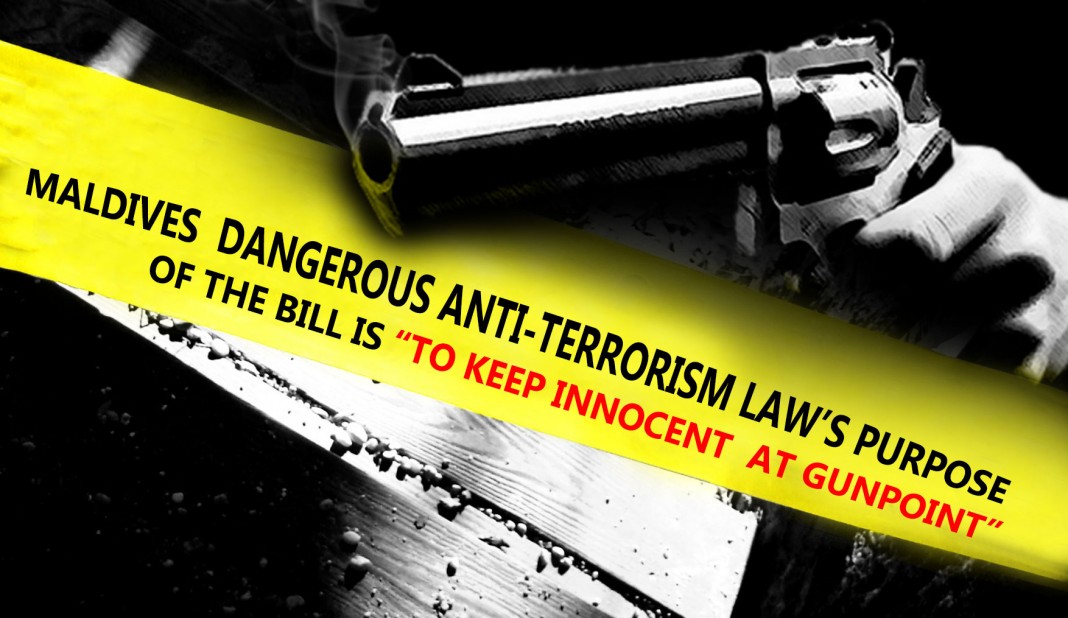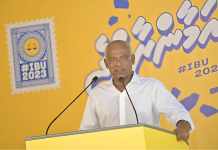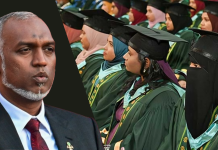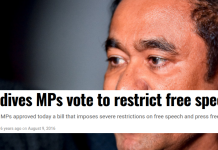In October 2015, President Yameen Abdulla gave Maldives citizens a new reason to fear the country’s security forces. He introduced a dangerous law in Majlis and this controversial anti-terrorism bill was then passed by the parliament . This bill granted the President an authority to declare groups ‘terrorist organisations’ . Its provisions opened the doors for the violation of fundamental rights to freedom of speech, privacy, peaceful assembly and a fair trial. It was quickly used to suppress peaceful political opposition and criticism of government policy. Since then Yameen’s government has abused the Anti Terrorism Act for innocents but not for real terrorists.
The anti-terror law is anything but that, it is an instrument with which the public is being terrorised. It is reviving the ability for political actors to legitimise abuse of power, a cause for concern given the frequency of political unrest and repression in Maldives past and present. The assumption of powers by the executive is inconsistent with terrorism-related concerns of the country, and the timing of the enactment is ominous. How the Yameen Govt. has made it a weapon against democratic Voice in Maldives.
1. Former President Mohamed Nasheed: After introducing this bill, President Abdullah Yameen has been busy in arresting and prosecuting political opponents. And the first victim of this insensitive bill became the Former and first democratically elected President of Maldives i.e. Mohamed Nasheed. After the Maldivian coup in 2012, Nasheed was ousted and soon imprisoned. He was sentenced to 13 years in prison on terrorism charges, these charges haven’t been proved as no fair trail took place.
2. Imprisonment of Opposition Leaders: Until now many opposition leaders have suffered under this law. Sheikh Imran Abdulla , the leader of Jumhooree Party has been imprisoned on terrorism charges for just giving a speech. Jumhooree Party deputy leader Ameen Ibrahim, and JP council member Sobah Rasheed were also charged with terrorism. The regime imprisoned Former Defence Ministers Tholhath Ibrahim and Mohamed Nazim using the anti-terror law enacted during the 30-year dictatorship. Former Defence Minister Ameen Faisal has been charged with terrorism over the military controversial detention of then-MP Abdulla Yameen in July 2010.
3. No provision regarding Terrorism funding: When the bill was sent to parliament, opposition parliamentarians highlighted the lack of provisions regarding terrorism financing and Maldivian citizens joining foreign terrorist organizations. MDP MP expressed concern with the law’s broad definition of terrorist activities. It also allows the authorities to interpret “legitimate peaceful political activities” as terrorism.
4. A simple speech can become the act of terrorism: Encouraging terrorism, an act which carries a 10 to 15 years jail sentence, is defined as “a speech or statement perceived by the public as encouragement of terrorism.” Although, the president has full power to decide whether a speech or demonstration is an act of terrorism or not. This happens regardless of how people feel about it. Many demonstrations against the policies of Maldivian Government have been restricted under this law. Other terrorism offenses include kidnapping, abduction, hijacking, endangering public health or safety, and damaging important infrastructure. The bill specifies penalties of up to 25 years in jail.
5. No Legal aid for suspects: The bill also proposes restricting constitutional rights upon arrest for terrorism suspects – including the right to remain silent and access to legal counsel. Suspects will not have the right to remain silent or access to a lawyer for 96 hours after the arrest. This has become a huge threat for the people who are falsely being arrested on this charges as they don’t have a right to defend themselves for several days. This gives additional opportunities to the state for abusing the suspects.


















